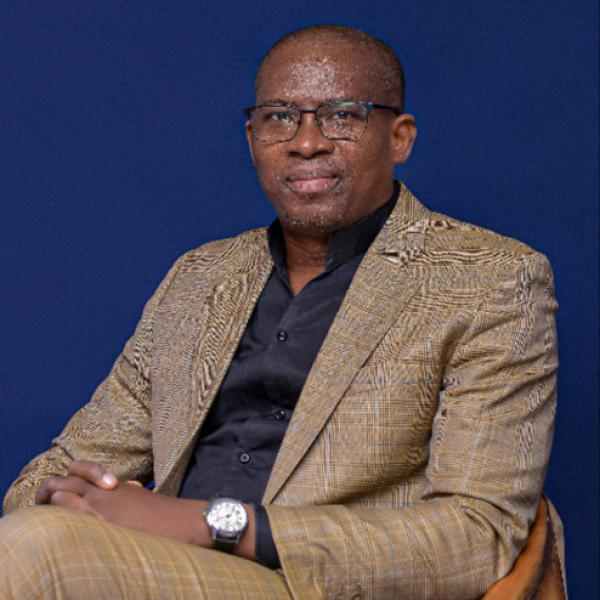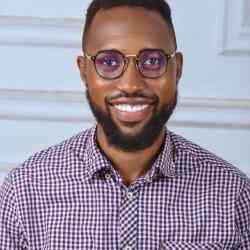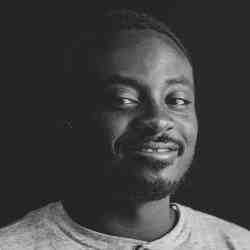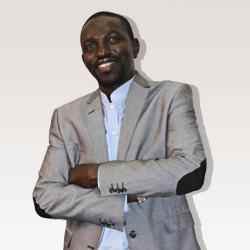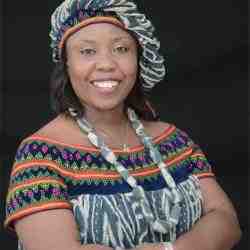前書き
Andre is creating a continent-wide network of young human rights defenders informed by the experiences of their elders and equipped to lead efforts to respond to familiar as well as new threats.
新しいアイデア
Andre’s view is that the common thread that links all young African human rights defenders is that they are living in an era in which the foundations of human rights in each country is facing familiar threats - such as military-inspired coups - as well as threats from the accumulating effects of climate disruption, including disruptions in agricultural practices and related larger migration into and out of their countries, and in some cases facing both of these at the same time (e.g. Senegal).
In 2021, beginning in the West Africa ECOWAS region, Andre launched the Influence Academy Fellowship. Through a rigorous selection process focused on identifying individuals proficient in addressing genuine human rights challenges, recruiting collaborators, measuring social impact, and effectively communicating their achievements.
The Academy has elected 250 fellows working across 20 countries in Africa. For example, a 23-year-old Fellow identified his area of engagement and received training through the Academy, enabling him to assemble a team of 20 lawyers and mobilize them to support a journalist imprisoned for his work. Together, they provide legal support and collaborate with organizations like IRDA in Gambia. In another example, a Fellow established the "Nénonéné Peasant Academy," promoting agroecological practices and educating farmers on economic, social, and cultural rights. By providing training in ecological agriculture and mentoring farmers to improve the quality of their produce, this initiative empowers communities to understand and assert their rights, contributing to environmental sustainability. This initiative not only fosters a network of changemakers but also empowers them to inspire more young people to take action, amplifying the impact of human rights advocacy across the continent.
In addition to the Influence Academy Fellowship, Andre has drawn on his own experience and that of peers in other countries to launch the first in a series of three “finding our way” traveling workshops that use proven African step-by-step engagement strategies to dismantle human rights oppression from: 1) taking action in a coup’s immediate aftermath; to 2) moving to restore and widen civic action and the sphere of government accountability; and then 3): launching coordinated regional initiatives by human rights defenders from different countries to roll back limits on widely accessible freedoms of their citizens (e.g., to participate in free and fair elections).
問題
Although ongoing dramatic examples of warring armies (e.g., Sudan and the DRC) capture global attention for the consequent regional suffering they create, the work of the vast majority of African human rights defenders is increasingly involved in widening the scope of citizens’ ability to exercise their rights within their immediate area of competent legal jurisdiction – e.g., the right for their children to be educated, for the water they drink to be free of contaminants and for parents not to be tricked into mistakenly sending their daughters to live in the city with a relative when in reality she is being trafficked to Dubai to be used as a house servant, or worse.
As this is happening, governments in the ECOWAS region and elsewhere on the continent are facing growing demands for transparency from the young (60% of the population are under 24) and internet savvy (55% of young people under 24 have access to a cellphone that offers access to social media platforms).
To take the Togolese government as an example, the same Togolese government that has been the focus of Andres’ efforts to defend human rights is now reaching out to Andre to co-create an African-centered human rights culture and legal canon based on historical African practices and precedents that will appeal to Africa’s young and internet-connected generation.
戦略
Andre sees in his journey to strengthen Togo’s human rights a number of useful lessons for defenders across the continent. In 2005, André focused on government and outside actors acting without impunity being held to account, whether it was ordinary citizens or high-ranking officials engaged in egregious acts. This involved creating organizations like the Citizen Platform for Justice and Truth and coordination with the High Commission for Human Rights in shaping the policy and strategy of national consultations that led to the creation of the Truth, Justice, and National Reconciliation Commission.
In 2017, André's organization embarked on a mission to enhance the skills of human rights defenders, with a focus on improving their communication abilities. This initiative aimed to shift their approach from confrontation to incorporating public testimony and truth-telling. The result of these efforts was groundbreaking federal legislation that limited the use of torture through extra-judicial means and prohibited the National Intelligence Agency from detaining individuals arbitrarily.
Building on these successes, André was appointed by the Togolese government to lead the Togo Vision 2030 project, which coincided with significant legislative progress in the structure and functioning of the Togolese government. During this period, key changes were made, including the re-establishment of the criminal court with public trials, the facilitation of civil society organisations (CSOs) to form legal umbrella organisations, and the reintroduction of debates for candidates vying for public office. He was able to advocate for and obtain a government decree establishing a multi-stakeholder platform comprising 9 ministries and 9 CSOs. This serves as a coordination and cooperation platform for the government, institutions and CSOs. In addition, two new laws have recently been passed that recognise the vital role of human rights defenders in upholding democracy and freedom of association as an inherent civil right free from government interference.
Central to his initiatives are powerful digital tools, exemplified by the AFEBIA website launched in 2020 and the groundbreaking Xonam mobile application. These platforms serve as dynamic channels for information dissemination, youth engagement, and citizen reporting, effectively addressing critical issues such as personal data protection and human rights violations.
André's initiatives have yielded tangible results, with over 500 young leaders trained, 800 rights holders receiving legal assistance, and guidance provided to 25 human rights defender NGOs in West and Central Africa.
Looking ahead, André envisions a future in which a diverse cohort of young activists catalyse profound change in Togo and Africa. Through education, training, advocacy and fighting for various rights, these individuals will be guided. The growth strategy for the next five years includes expanding the Academy's reach and impact by broadening its membership base, fostering collaboration with additional organisations and networks, and enhancing its training and mentorship programmes. In addition, André aims to promote policy changes and legal reforms that uphold human rights principles, including the protection of human rights defenders and freedom of association, and to integrate aspects related to African core values into charters promoting universal human rights. He also plans to strengthen grassroots movements and community-based initiatives to effectively address local human rights issues.
人
Andre was born and grew up in a polygamous family of twelve children, with a mother but no father present. He had a Catholic religious education through high school and embraced the idea of all the possibilities that democratic change could bring. With three of his friends, he launched a student newspaper, Voix des Jeunes and recruited a sympathetic teacher to be their advisor.
At university, he studied business law for four years and became a journalist at a national magazine for five years, but he was dissatisfied with this work. He decided to move to a small rural village with no electricity or running water and taught French there from 2001 to 2004.
Andre taught students to organize and produce their own solutions to their problems. One of the instructors at the school had worked at a human rights organization, and in 2004 Andre moved to Lome to work at that organization. In 2005, the President of Togo died, his son took over, and in the process, many people were killed, while the President of the Human Rights organization where he worked left to the United States.
Andre left that organization and founded the first Togolese law related NGO, which condemned the so-called “Transitional Justice” explanations of what the Government was doing. He filed the first successful case against the Government, demanding compensation for a victim of torture by the police. He then began filing similar cases on behalf of victims of torture that had taken place at the regional level, outside Lome, and expanded his legal advocacy on behalf of the coup’s many victims.
